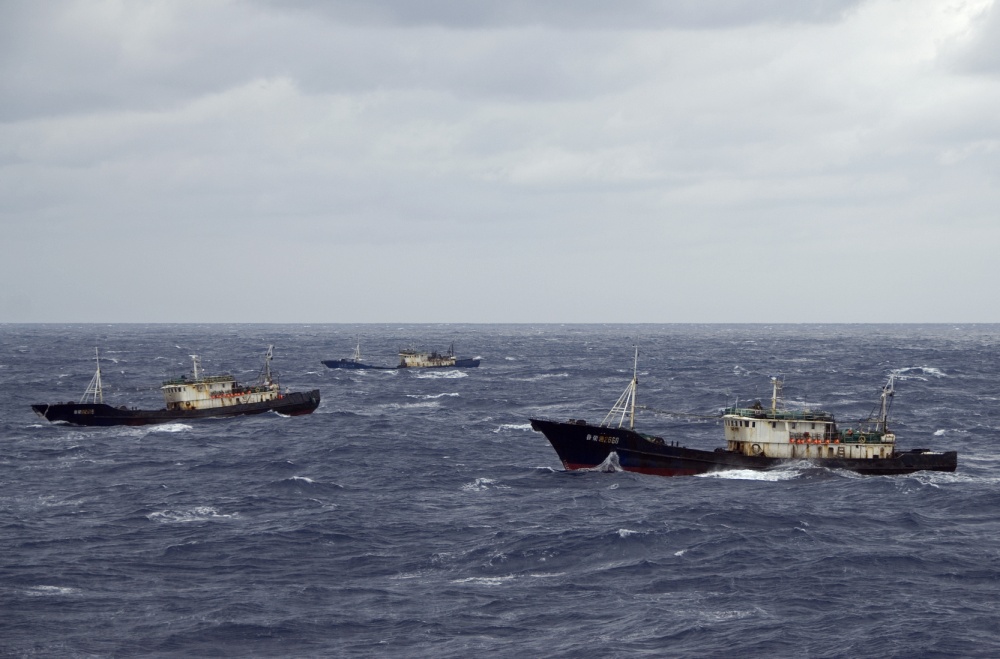China to build $200 million fishery project on Australia’s doorstep

With Australia’s relationship with China under great pressure, a project that challenges our strategic national interest has been quietly endorsed by the Papua New Guinea government, as reported by Aaron Smith in The Guardian last month.
The town of Daru is the closest PNG community to Australia. Even though it is around 200 kilometres from the Australian mainland, it is very close to the islands of the Torres Strait that are within our northern border. Daru is the capital of Western Province (also known informally as Fly River Province), but it is a small community that’s beset with numerous health and social issues.
Last month, China’s Fujian Zhonghong Fishery Company signed a memorandum of understanding with the PNG government and the Fly River provincial government to build a $200 million ‘comprehensive multi-functional fishery industrial park’ on the island of Daru.
Any doubt that this project is sponsored directly by the Chinese government is put to rest by the fact that it was announced by China’s Ministry of Commerce, supported by Beijing’s powerful ambassador in Port Moresby, Xue Bing, who declared that the investment ‘will definitely enhance PNG’s ability to comprehensively develop and utilise its own fishery resources’. Really?
In a remote and woefully underdeveloped community like Daru, a $200 million project will have a massive impact.
But the question that needs to be asked is simple: why Daru?
I’m assured by people with a reasonable knowledge of PNG’s fisheries that there are no commercial fishing grounds close to Daru. So why plan to spend $200 million on a fish-processing plant in an area not known to have commercial fishery resources?
The fact that the plant will lie just a few kilometres from Australian island communities is a likely reason. It’s hardly comfortable, and certainly not in Australia’s strategic interest, to have a major Chinese government resource exploration project right on our northern doorstep.
But it appears that only the federal member for the north Queensland seat of Leichhardt, Warren Entsch, understands just how consequential the project will be. He has raised concerns, but it’s not clear if anyone in authority is listening, or if they care.
Australia, Queensland and PNG have a comprehensive treaty covering the Torres Strait, and that includes fishing rights.
Implementation of the treaty over the years hasn’t been without controversy, but relations between the people of PNG who live in Daru and communities in coastal Queensland and the Torres Strait are generally harmonious. That harmony is driven by a unique set of fishing and border-crossing rights enshrined in the treaty and managed by officials from both countries with significant input from Queensland.
If the project goes ahead, it’s reasonable to assume that Chinese fishing boats will be active in the seas around Daru, and in the Torres Strait. They may use fishermen from Daru and elsewhere in Fly River Province, something the Chinese ambassador was clearly alluding to.
It will hardly be ideal for the Australian Border Force, which patrols the strait, to have to decide which fishing boats and crew are actually from PNG and which might be fronts for Chinese operators from the ‘multi-faceted’ facility.
Australia’s relationship with PNG is at a critical phase. At every opportunity China pushes policies that drive a wedge between our two countries.
A $200 million ‘fishery’ investment in an area not known for an abundance of fisheries but strategically as close to Australia as you can get, surely raises questions about the real agenda.
Australia has spent a considerable sum on aid programs in health care, education and other services in Fly River Province, including in Daru. But it’s clear we have fallen short when it comes to economic development, and especially development that lifts living standards and provides small business and employment opportunities for villagers.
The agreement for this project falls under the Belt and Road Initiative being pursued by China in PNG. If Australia is to stop the project from proceeding any further, it will need to move fast. Whatever Australia opts to do, its response will have to be substantial, people focused and readily achievable.
One has to hope that the important strategic location of China’s planned investment generates sufficient attention in Canberra to prompt delivery of an appropriate counterproposal, and quickly.
Editors’ note: The first paragraph of this article was amended at 7.30 pm AEDT on 14 December 2020 to include the name of the author of The Guardian article cited in a link in the original text.